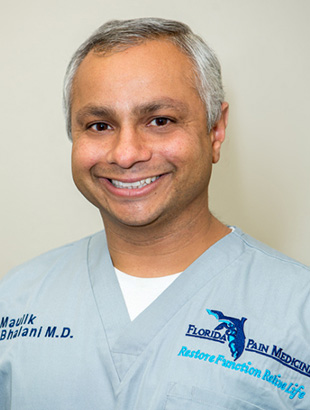 With healthcare’s ever-evolving environment and constant debate at state and federal levels, one can confidently say that healthcare is complicated. What is not complicated is the understanding that patients should receive the highest quality of care and consideration, which requires their physician to be well-versed in matters involving controlled prescription drugs, such as opiate medications. At Groves Country Club, Dr. Maulik Bhalani, Medical Director, Founder, and CEO of Florida Pain Medicine, spoke to VeriMed providers about how to give patients the highest level of attention and care while adhering to current laws, rules, and regulations.
With healthcare’s ever-evolving environment and constant debate at state and federal levels, one can confidently say that healthcare is complicated. What is not complicated is the understanding that patients should receive the highest quality of care and consideration, which requires their physician to be well-versed in matters involving controlled prescription drugs, such as opiate medications. At Groves Country Club, Dr. Maulik Bhalani, Medical Director, Founder, and CEO of Florida Pain Medicine, spoke to VeriMed providers about how to give patients the highest level of attention and care while adhering to current laws, rules, and regulations.
Dr. Bhalani gave insight into the ethical and legal guidelines of dealing with patients and their controlled prescribed medications. One area of concentration Dr. Bhalani shared with the audience was on the patients’ risk level for abusing prescription opiate medication. This risk classification, along with Urine Drug Screenings, will help ensure responsible adherence to prescribed medications. For a low-risk patient, Dr. Bhalani suggests screening the patient 1-2 times annually. For moderate-risk patients, screen your patients 1-2 times every six months. With high-risk patients, such as those with a history of alcohol and drug abuse, screenings should be conducted 1-3 times every three months or at every visit. These Urine Drug Screenings combined with a risk assessment will help to ensure your patient is complying to medicinal regimens according to its recommended use.
Violations when dealing in controlled substances can lead to fines or loss of license for physicians.
One of the most important steps to take with patients regarding their medication is going over rules, legalities, and the risks of starting on their controlled prescription medications. Your patients should know details surrounding their medication and it is up to the physician to enlighten the patient on the matter. As a physician, your patients should understand laws and regulations surrounding their prescribed controlled substance, however, not all of the onus lies on the physician. Patients should receive a controlled substance agreement from their provider that explains this detail, but also clearly outlines the patient’s responsibilities when it comes to taking a controlled substance as part of their plan of care.
In regards to lost or stolen prescription drugs, Dr. Bhalani says to report the lost or stolen medication within 24 hours to the Board of Medicine within the state while the patient should also file a police report acknowledging their medications have been compromised. With controlled substance abuse increasing, both in Florida and nationwide, it is important that every physician and patient do his or her part in preventing abuse of prescriptions to protect themselves, their loved ones, and their physicians.
Dr. Bhalani and the staff at Florida Pain Medicine make it their mission to help patients “restore function, relive life.” They offer complete, compassionate, and comprehensive pain care while ensuring they remain within the ethical guidelines. Florida Pain Medicine prides itself on its expertise not only in pain management, but the intricacies of the law and changing regulations. If you are interested in learning more about Florida Pain Medicine, either as a patient or as a professional, visit www.floridapainmedicine.com and see how Florida Pain Medicine can help you today!







